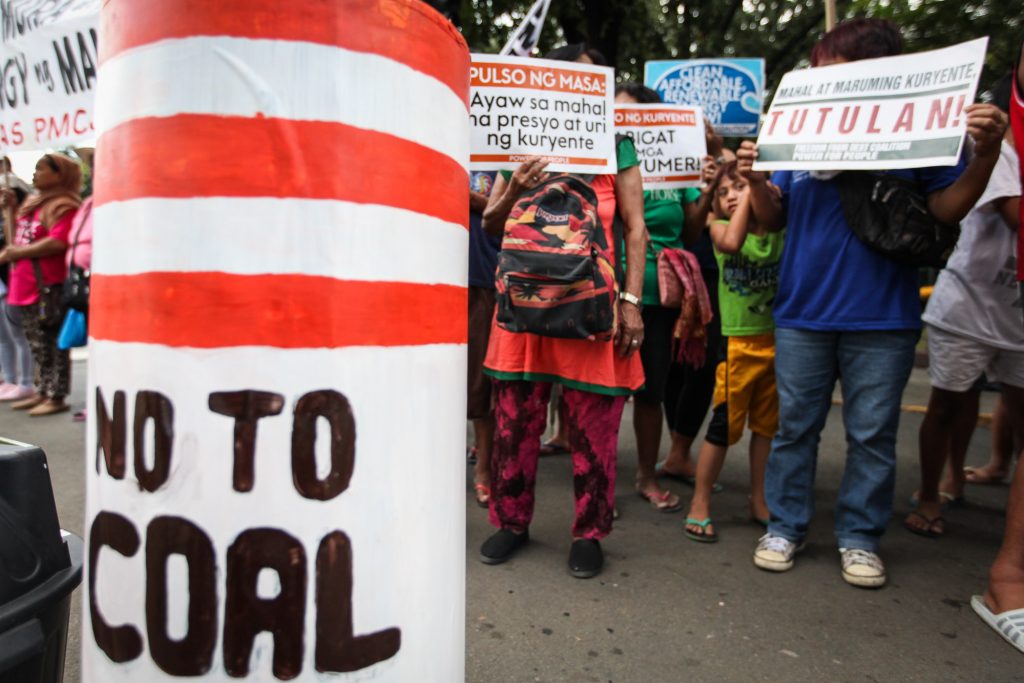
Environmental activists in the Philippines called on the Asian Development Bank this week to stop financing coal projects and take responsibility for the effects of coal on Filipino communities.
The call was made on the occasion of the bank’s 53rd Annual Governors Meeting.
An independent evaluation by the bank has revealed that it failed to align with climate imperatives in its funding decisions.
“The ADB is in no position to be touting itself as a development partner, not when it keeps throwing its member countries under the climate crisis bus,” said Ian Rivera, coordinator of the Philippine Movement for Climate Justice (PMCJ).
The group said the bank “dared to feed climate-vulnerable Philippines and Asia with lies of clean coal, knowing full well that their fossil fuel profits come at the cost of our people’s survival.”
“This has to stop now,” said Rivera in a statement.
ADB has provided funding for several coal-fired power plant projects across the Philippines, including in Masinloc in Zambales, Calaca in Batangas, Sual in Pangasinan, and Naga City, Cebu.
Several community members in the said municipalities have reported environmental and health degradation brought by the operation of the facilities.
“In the decades since the coal-fired power plants funded by ADB began operating here, our people have suffered from polluted air, health problems, and loss of livelihood for workers dependent on a healthy environment for their survival,” said Rosanna Marie Soriano, chairwoman of the Save Sual Movement.
“Why should we be the ones to pay the price of ADB’s coal profit? We urge the bank to own up to its responsibilities and end its dirty energy legacy now,” she said.
While ADB claims that it has not financed any new coal project since 2014, it has continued to fund coal and fossil fuel related infrastructures across the region, said the activist groups.
“Without an energy policy that prohibits financing coal power, nothing stops ADB from including coal plants in its investment pipeline in the future, adding to the many coal sins the bank must already atone for,” said lawyer Aaron Pedrosa, Energy Working Group Head of PMCJ.
Groups within PMCJ have initiated legal interventions against coal plants, especially for the 200MW coal facility in Naga that, as an investigation by ADB itself later found, caused higher morbidity and mortality incidences among host community members than national averages.
“In the past, the bank promised that coal and fossil fuels are key to providing cheap, clean, and accessible energy to developing countries. Now that this claim has proven false, ADB should no longer delay the pursuit of real solutions such as advancing renewable energy to address development needs and the climate crisis,” said Rivera.
Source: Licas Philippines
0 Comments